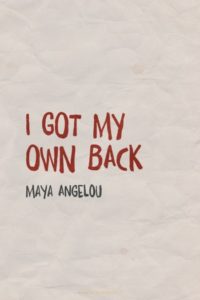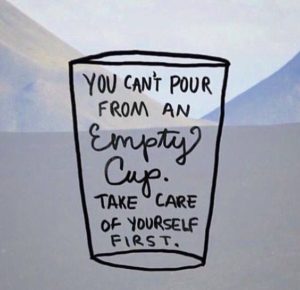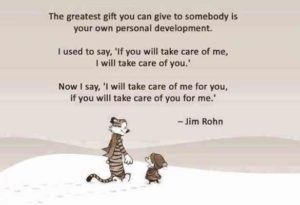by Marjan Venema

Trust is the willingness to be vulnerable. To open yourself up to the words and actions of others. It’s not hiding behind a shield of invulnerability, of not caring, of not being touched by how others respond to your words and actions.
It takes courage to open yourself up to others. After all, you don’t control them and it does take some leap of faith to trust them with your insecurities.
While trusting others takes courage, trusting yourself should be a piece of cake, shouldn’t it?
I don’t think so. I think it is harder. With others, we only have to deal with their visible and audible responses. What other people think only makes it to our eyes and ears if they let it. Oh yes, we may fill in the blanks and project our own thoughts onto them. But that’s just it. They are our own thoughts, not theirs!
When it comes to self-trust, our own thoughts are inescapable. We can’t run from them. Suppressing them is a self-defeating exercise. It takes a lot of energy and usually only serves to increase their importance.
So … how is your self-trust? How willing are you to be vulnerable with yourself? To show up and be seen by you? As you are, warts and all?
Are you your own worst judge? Are you always taking on more than you can handle and destroying your self-confidence by never being able to accomplish all you set out to do? Is your unwillingness to say “No” not only making you feel stressed, but also making you question your abilities and your worth? Do you know why you desperately want to say “No”, when succumbing to saying “Yes”?

If you are like me and like most people, then your self-trust can probably do with a boost.
BRAVING. The acronym used by Brené Brown to remind us what trust is made of.
BRAVING tells us what people need to experience to allow their trust for someone to grow.
- They need to have their Boundaries respected and need to be clear on yours.
- They need to feel confident that you’re Reliable, that you’ll do what you say you’ll do.
- They need to see that you are Accountable, that you own your decisions, including your mistakes.
- They need to sense that you are a Vault, that you don’t share information that’s not yours to share.
- They need to witness you acting within your Integrity, that you stick to your values even when the going gets tough.
- They need to know that your responses will be Nonjudgmental, that they can ask for what they need without having judgments made about them because of it.
- They need to hear you extend the most Generous interpretation possible to the intentions, words and actions of others.
BRAVING can be used to assess someone else’s trustworthiness, to asses your own trustworthiness to others and, perhaps most importantly, to assess and work with your trustworthiness to yourself.
You may be in for a couple of surprises when you start asking and answering questions around the Anatomy of Trust as BRAVING is also known. I know I was. What surprised me — actually shocked me quite a bit — was realizing that not saying “No” didn’t make me more lovable or more worthy of friendship, but made me less trustworthy! Now, that was an eyeopener if ever there was one.

Not saying “No” to people overstepping my boundaries may have made me “agreeable” but also resentful and likely to explode as the last drop made the bucket flow over. Not saying “No” to requests upon my time and effort didn’t make me nice, but unreliable. Not saying “No” to being judged didn’t make me “take feedback well”, but more likely to judge others in turn.
Using BRAVING to assess and adjust my own behavior has done wonders for my self-trust.
The beauty is that this not only benefits me.
As “vulnerability is the birthplace of innovation, creativity and change” to quote Brené Brown, we need more willingness to be vulnerable, more trust, in our organizations. The way to get there may well be to focus on self-trust before focusing on trusting others. Because, as my self-trust has grown, it has become much, much easier to trust others.
And because showing vulnerability and trusting others is contagious. As you grow your self-trust and start trusting others more, your change in behavior will be noticed and catch on. Maybe not like wildfire, but it will spread.
How did you learn to trust yourself? Tell us about your BRAVING moment below!


i want to learn how to trust myself
Good to hear, Zakita. What steps are you taking to do so?